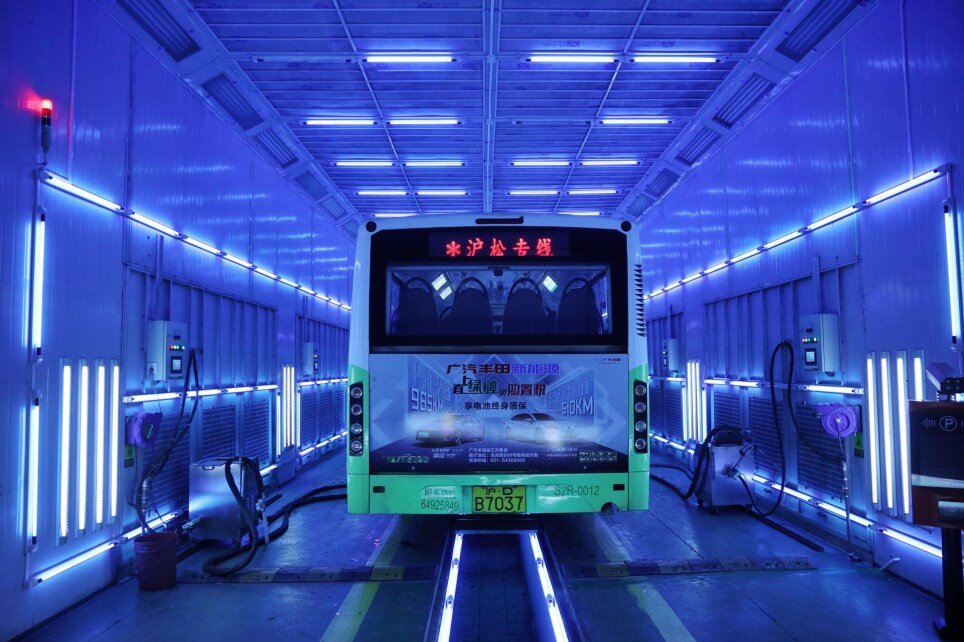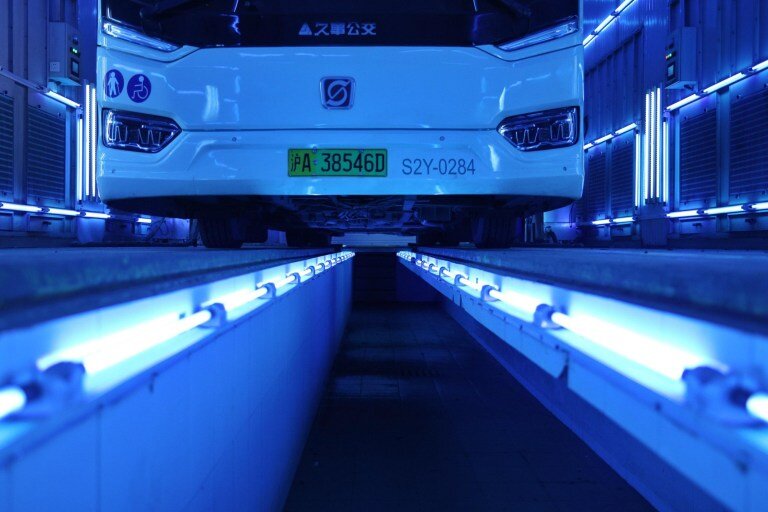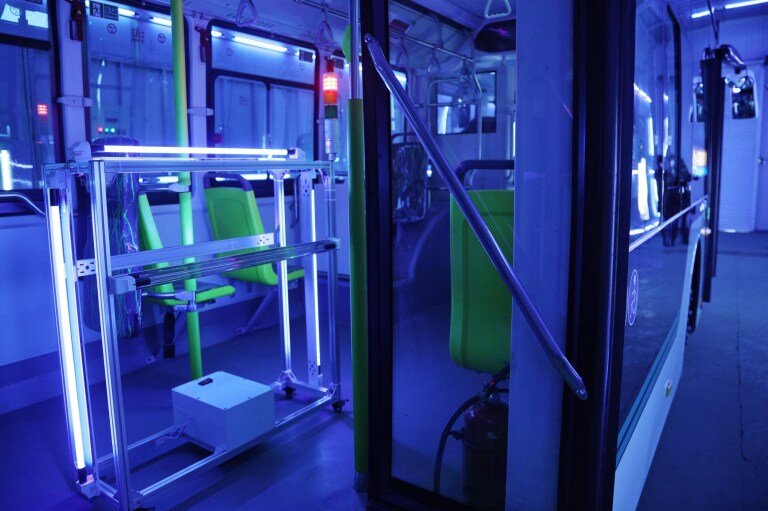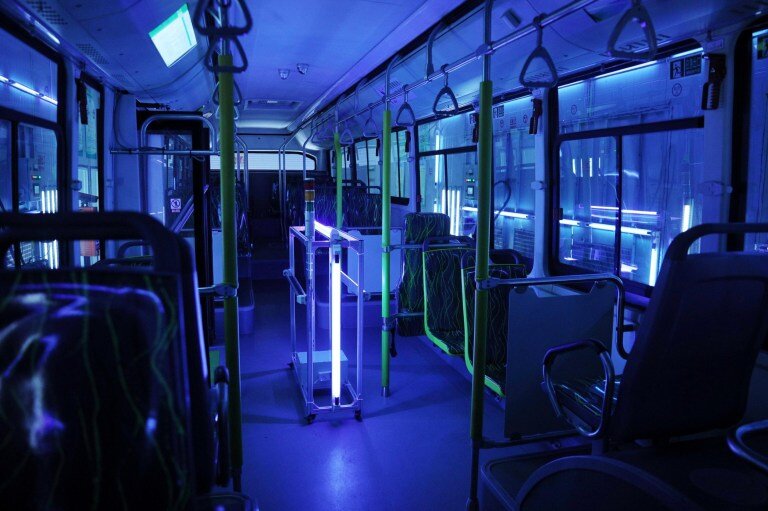Buses blasted with UV light to rid them of Coronavirus: Shanghai, China
Health experts in China are blasting buses with beams of ultraviolet light in a bid to contain the coronavirus outbreak. With viruses spreading via droplets landing on shared surfaces, public transport hubs and vehicles are seen as infection hotbeds. Guidance issued by the National Health Commission says the virus is sensitive to ultraviolet light and heat, although the World Health Organisation warns against using UV lamps to sterilise hands or other areas of skin. Photos taken in Shanghai show entire buses awash with the eerie glow of lamps pumping out beams of radiation to eradicate any trace of the bug.
Mainland China reported a rise in new confirmed coronavirus cases on Thursday, reversing three straight days of decline, following a spike in new infections in Wuhan, the city at the centre of the outbreak. There are now 139 new confirmed cases as of Wednesday, the NHC said, bringing the total accumulated number to 80,409. Authorities reported 119 new cases the previous day and 125 the day before that. Wuhan’s new infections climbed to 131 from 114 a day earlier. There was no immediate elaboration and health officials were due to hold a briefing later in the day. After what some critics said was an initially hesitant response to the new virus, China imposed sweeping restrictions to try to stop it, including transport suspensions, lockdowns of cities and extending a Lunar New Year holiday across the country. WHO officials have said other countries have much to learn from the way China has handled the outbreak and Vice Foreign Minister Ma Zhaoxu said many countries had asked for help and China was responding.
The number of new confirmed cases in Hubei, excluding Wuhan, has remained in single digits for seven consecutive days, with three new infections recorded on Wednesday. In the rest of mainland China, outside Hubei, there were only five new confirmed cases, the health commission said. With the downward trend in new cases, Chinese authorities have turned their attention to stopping the virus being brought back in from new coronavirus hot spots abroad.




